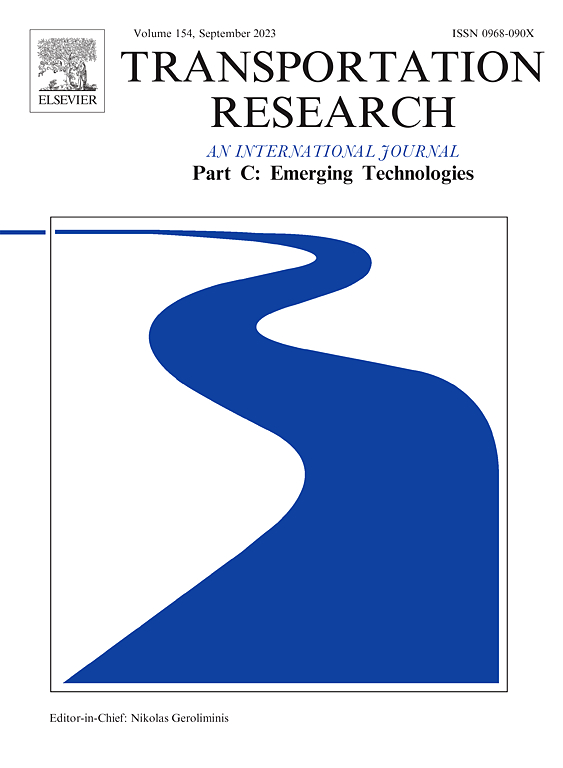A data-driven preference learning approach for multi-objective vehicle routing problems in last-mile delivery
IF 7.6
1区 工程技术
Q1 TRANSPORTATION SCIENCE & TECHNOLOGY
Transportation Research Part C-Emerging Technologies
Pub Date : 2025-03-24
DOI:10.1016/j.trc.2025.105101
引用次数: 0
Abstract
Last-mile delivery service providers and drivers often choose routes deviating from the shortest distance, influenced by personal preferences and various business-level factors. This study introduces an innovative data-driven optimization approach for learning preferences of decision-makers (DMs) in multi-objective vehicle routing problems. Utilizing real-world historical data from a last-mile delivery logistics platform, we develop a machine-learning framework to learn DMs’ preferences in designing delivery routes. To design our approach we focus on a multi-objective capacitated vehicle routing problem with time windows and develop an integrated framework that combines supervised learning models, sampling techniques, and optimization methods to determine preference weights for objective functions based on selected features. We conduct extensive numerical experiments to test the proposed data-driven optimization approach. Our findings suggest that analyzing historical planned and actual routes reveals DMs’ preferences, such as prioritizing workload balance and minimizing fleet usage over travel distance alone. Furthermore, this study offers insights into key factors shaping last-mile delivery logistics, including workload distribution and deviations from pre-planned routes, enabling more informed and human-centered decision-making in logistics optimization.
求助全文
约1分钟内获得全文
求助全文
来源期刊
CiteScore
15.80
自引率
12.00%
发文量
332
审稿时长
64 days
期刊介绍:
Transportation Research: Part C (TR_C) is dedicated to showcasing high-quality, scholarly research that delves into the development, applications, and implications of transportation systems and emerging technologies. Our focus lies not solely on individual technologies, but rather on their broader implications for the planning, design, operation, control, maintenance, and rehabilitation of transportation systems, services, and components. In essence, the intellectual core of the journal revolves around the transportation aspect rather than the technology itself. We actively encourage the integration of quantitative methods from diverse fields such as operations research, control systems, complex networks, computer science, and artificial intelligence. Join us in exploring the intersection of transportation systems and emerging technologies to drive innovation and progress in the field.

 求助内容:
求助内容: 应助结果提醒方式:
应助结果提醒方式:


